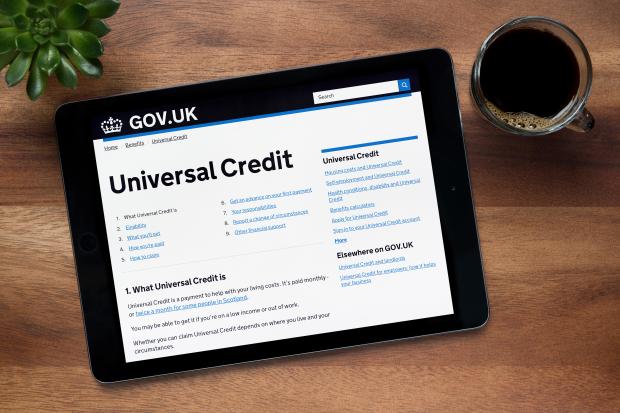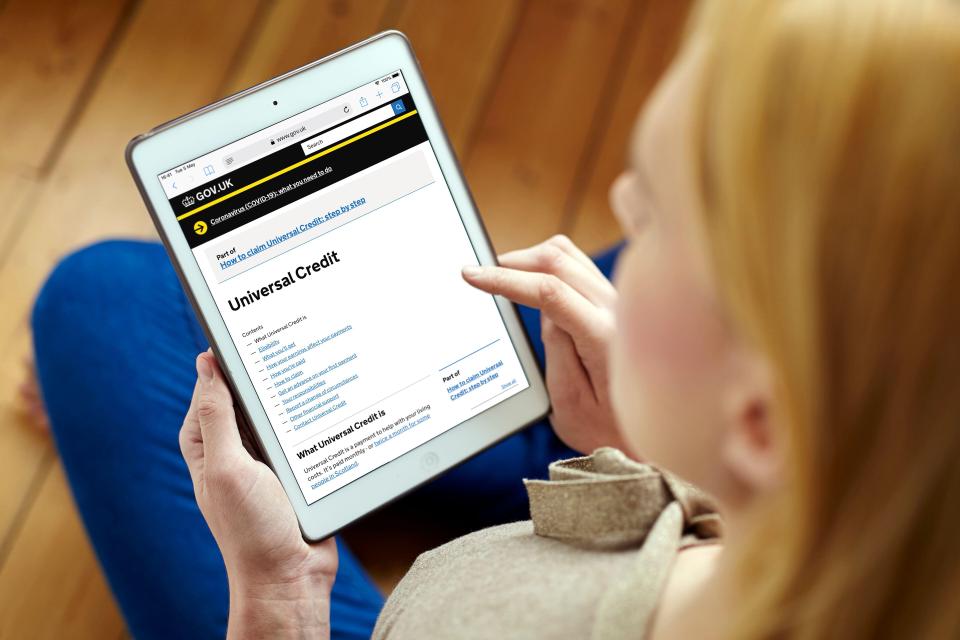THOUSANDS of households on Universal Credit will continue getting a huge pay rise in the coming days.
Benefit payment rates rose by 1.7% on April 7, in line with the consumer price index (CPI) level of inflation for September 2024.
It’s important to note that, although the new rates are now in effect, most people won’t see an increase in their payments until later this month or in June.
This is because those on Universal Credit have to wait a bit longer to receive the uprating because of how the benefit is assessed.
It means that the date you’ll receive the pay boost will depend on when your last assessment period was.
Universal Credit is paid monthly and is based on your circumstances each month.
This is called your “assessment period”, and it starts the day you make your claim.
The new Universal Credit rates will not come into effect until after the first full one-month assessment period, which starts on or after April 7.
Those whose assessment periods started after April 7 saw their benefits rise as early as May 13.
However, those whose assessment periods started before this date could be waiting until June 12 to receive the payment boost.
Here’s how your previous assessment period affects when you’ll get the payment boost:
- March 17 to April 16 – increase applied in May, you’ll get it in your payment on May 21
- March 18 to April 17 – increase applied in May, you’ll get it in your payment on May 22
- March 19 to April 18 – increase applied in May, you’ll get it in your payment on May 23
- March 20 to April 19 – increase applied in May, you’ll get it in your payment on May 24
- March 21 to April 20 – increase applied in May, you’ll get it in your payment on May 25
- March 22 to April 21 – increase applied in May, you’ll get it in your payment on May 26
- March 23 to April 22 – increase applied in May, you’ll get it in your payment on May 27
- March 24 to April 23 – increase applied in May, you’ll get it in your payment on May 28
- March 25 to April 24 – increase applied in May, you’ll get it in your payment on May 29
- March 26 to April 25 – increase applied in May, you’ll get it in your payment on May 30
- March 27 to April 26 – increase applied in May, you’ll get it in your payment on May 31
- March 28 to April 27 – increase applied in June, you’ll get it in your payment on June 1
- March 29 to April 28 – increase applied in June, you’ll get it in your payment on June 2
- March 30 to April 29 – increase applied in June, you’ll get it in your payment on June 5
- March 31 to April 30 – increase applied in June, you’ll get it in your payment on June 6
- April 1 to April 31 – increase applied in June, you’ll get it in your payment on June 7
- April 2 to May 1 – increase applied in June, you’ll get it in your payment on June 8
- April 3 to May 2 – increase applied in June, you’ll get it in your payment on June 9
- April 4 to May 3 – increase applied in June, you’ll get it in your payment on June 10
- April 5 to May 4 – increase applied in June, you’ll get it in your payment on June 11
- April 6 to May 5 – increase applied in June, you’ll get it in your payment on June 12
Are you missing out on benefits?
YOU can use a benefits calculator to help check that you are not missing out on money you are entitled to
Charity Turn2Us’ benefits calculator works out what you could get.
Entitledto’s free calculator determines whether you qualify for various benefits, tax credit and Universal Credit.
MoneySavingExpert.com and charity StepChange both have benefits tools powered by Entitledto’s data.
You can use Policy in Practice’s calculator to determine which benefits you could receive and how much cash you’ll have left over each month after paying for housing costs.
Your exact entitlement will only be clear when you make a claim, but calculators can indicate what you might be eligible for.
Here’s a full list of the new benefit rates for 2025-26 so you can check how much extra you might get.
Universal Credit
Universal Credit standard allowance (monthly)
- Single, under 25: £316.98 (up from £311.68)
- Single, 25 or over: £400.14 (up from £393.45)
- Joint claimants both under 25: £497.55 (up from £489.23)
- Joint claimants, one or both 25+: £628.10 (up from £617.60)
Extra amounts for children
- First child (born before April 6, 2017): £339 (up from £333.33)
- Child born after April 6, 2017 or subsequent children: £292.81 (up from £287.92)
- Disabled child (lower rate): £158.76 (up from £156.11)
- Disabled child (higher rate): £495.87 (up from £487.58)
Extra for limited capability for work
- Limited capability: £158.76 (up from £156.11)
- Work-related activity: £423.27 (up from £416.19)
Carer’s element
- Caring for a severely disabled person at least 35 hours a week: £201.68 (up from £198.31)
Work allowance increases
- Higher work allowance (no housing): £684 (up from £673)
- Lower work allowance (with housing): £411 (up from £404)
Everything you need to know about Universal Credit

